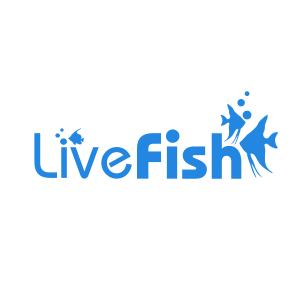Corydoras Ambiacus - Wild Caught 3.5cm
Corydoras Ambiacus
The Corydoras Ambiacus is a stunning, contrasting, and absolutely adorable species that is quite rare in the Australian aquarium hobby. They make for a beautiful alternative to the more common corydoras species, such as panda cories or peppered corydoras, and a great entry into the higher-end corydoras species. This particular species only reaches around 7 cm, which makes them absolutely perfect for smaller aquariums, and they are surprisingly easy to care for. Given the right environmental conditions, they will also breed in the home aquarium and make for a great breeding project, but they can also just be enjoyed in a community setting.
Corydoras Ambiacus has a very unique body shape compared to other Cories. These fish have stubby bodies but a longer, narrower face which which is why they are also referred to as Brochis Ambiacus. The body colour of this fish is a light sandy brown colour, which blends in perfectly with the substrate these fish are found in the wild. They also have a pair of black dorsal patches that run down the eye and dorsal fin. The rest of the body, however, is peppered with short black squiggles, which, depending on the individual, can resemble random spots or broken lines.
Just like any other corydoras species, the Corydoras Ambiacus constantly stirs the substrate layer in order to look for food. They are almost exclusively bottom-dwelling fish and are an awesome option to add some life to the bottom of the tank. The Corydoras Ambiacus is not a shy species either and is quite active, making them a great and popular fish for community and planted aquariums. These fish are also considered to be schooling catfish. In the wild, they are often seen in large groups; however, in the home aquarium, it is recommended to keep at least 3 or more. An ideal school would be around 6 plus individuals to really make them feel comfortable and to add some activity to the tank.
Due to their newer entrance in the Australian aquarium hobby, there are not a lot of recorded breeding attempts however, the process should be fairly easy, as other corydora species have been bred in captivity. Differentiating males and females is possible where the males are often smaller and narrower compared to the larger-bodied females. The best method to identify is to get a pack of 4-6 Corydoras Ambiacus and let a pair naturally form. Females are often triggered to spawn after being fed high-quality food and a slight reduction in temperature. The wild origin of the Corydoras Ambiacus is South America.
Tank Recommendations for your Corydoras Ambiacus
As Corydoras Ambiacus reach around 5 cm as adults, it is best to keep them in an aquarium with a minimum size of around 700 litres. A larger aquarium will always be better due to their active behaviour, and it also allows for the space to keep other tank mates.
A sand substrate is best, as coarser substrates like gravel often result in corydoras damaging their barbels. The Corydoras Ambiacus would look great against both a light and dark substrate since they will contrast amazingly well in either situation. They will also love plants in the aquarium and places for cover through the addition of driftwood. These are also tropical fish that prefer 24-26° C with a pH of 6.0-7.0
Suitable Tank Buddies
Corydoras Ambiacus are an incredibly peaceful fish which can be kept with an absolutely massive range of community aquarium. They do not display any aggression even when breeding and make for a perfect addition, even with sensitive or shy fish. The only factor that should be considered is that Corydoras are almost exclusively a bottom-dwelling species, which means that any super active or large top-dwelling fish may outcompete the Corydoras for food.
Usually Compatible
community fish such as rams, tetras, angelfish, discus, rainbow fish, and many more.
Sometimes Compatible
Larger peaceful South American cichlids such as Uaru, Severums, and other fish, which may outcompete them as they are mostly bottom-dwelling and small fish.
Rarely Compatible
Large and aggressive species such as oscars, which may prey on the Corydoras. This is especially important as Corydoras have spines on their pectoral fins like many catfish; this can result in both the corydoras and the predator fish's death.
Feeding your AlexrodiCorydoras
Just like any other corydoras, these fish are very easy to feed. They will take a wide range of pellets, flakes, and frozen foods. Just like any fish, though, they should be fed a varied diet with a mix of different foods. The ideal diet would be a good quality micro slow sinking pellet or crushed flake, supplemented with frozen bloodworms or black worms, or even live foods like baby brine shrimp or micro worms.
| Scientific Name | Corydoras ambiacus |
|---|---|
| Care Level | Easy |
| Common Names | Corydoras Ambiacus, Axelrods Corydora, Brochis Ambiacus |
| Diet | Carnivore |
| Fish Family | Callichthyidae |
| Lifespan (years) | 5 |
| Max. Length (cm) | 7 |
| Min. Tank Volume (l) | 70 |
| Origin | South America |
| Sociability | Peaceful |
| Venomous | No |
| Water Conditions | 24-26° C, pH 6.0-7.0 |
| Plant Safe | Yes |

